Your students are learning more with each passing day, and you’ve been learning too – about your students’ unique interests, abilities, and needs! The value of getting to know your students as individuals and continuing to nurture your relationships with them throughout the year cannot be overstated. Although it’s true that simply building strong relationships with each of your students will not teach them math and literacy skills, the way they feel about you will influence their confidence and engagement across learning domains. Each interaction you share also provides students with a model for how to interact with peers and other adults. It’s no surprise that students who have strong relationships with their teachers tend to experience better outcomes both academically and socially!

Building warm and supportive relationships with your students is one of the best things you can do to help ease their transition into Kindergarten, but it won’t happen overnight! Here are some tips to keep in mind as you continue to develop yours:
Show them respect.
Demonstrating respect toward your students will help them learn to do the same toward you and their peers. A few ways to do this are:
- Acknowledging students by name and making eye contact when you address them, both individually and in large groups
- Kneeling or sitting down and gently leaning in toward your students during interactions to show that you are actively listening and interested in what they have to say
- Using a pleasant, calm tone of voice
- Avoiding interrupting or talking over students

Source: iStock/monkeybusinessimages
Encourage them to share their perspectives.
Taking time to show your students that you value who they are and what they have to say will help them strengthen their social skills and feel more comfortable expressing themselves. A few ways to do this are:
- Letting students take the lead in conversations and activities
- Asking them about their thoughts, feelings, ideas, opinions, and life experiences
- Showing your interest by following up with questions to keep the discussion going
Match your efforts to the needs of individual students.
When you are struggling to make a connection with students – particularly those who are experiencing academic or behavioral difficulties – putting extra time and thought into relationship building makes a big difference. A few ways to do this are:

- Partnering with parents to gain inside knowledge about their children’s interests and experiences so that you can jumpstart your relationships with students who may be harder to reach
- Keeping calm when things go wrong. Just as we tell our students to stop and think before they act, it’s important to remind ourselves! How you respond to students during challenges will determine whether they feel comfortable in the future with sharing openly, seeking assistance when they need it, and taking academic risks
- Acknowledging and praising students’ strengths and positive behaviors so that your relationship isn’t solely focused on dealing with problems
When you invest in your relationships with individual students, you’ll also be making an investment toward improving the overall climate of your classroom and learning experiences for all. So, let your warmth be contagious! Establishing a precedent of trust, respect, and mutual enjoyment in your relationships with students this year will benefit them now and for many years to come.
More questions? VKRP provides support via the online chat feature when you are in the system, via email vkrp@virginia.edu, and via toll free 866-301-8278 ext. 1.

